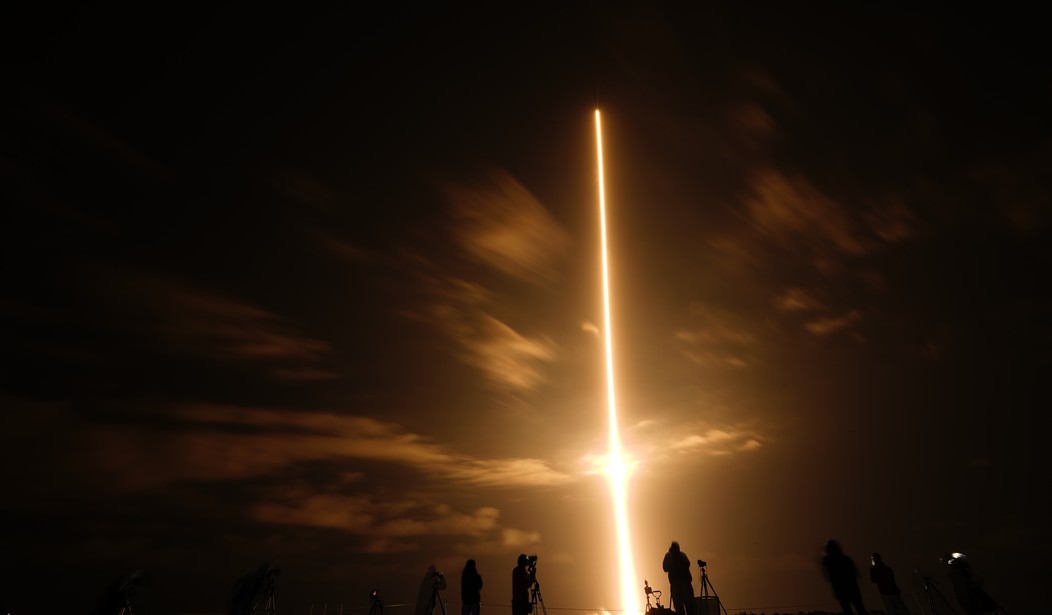The escalating and internationally illegal situation between Ukraine and Russia has revealed a number of concerns and issues to the world. As it stands currently, Russian forces nearly surround the country on three sides, and numbers of troops have recently violated Ukraine’s sovereign territory, moving to liberate (actually, annex) supposedly “Russian leaning” regions. Russian troops have been conducting joint military exercises with Belarus, seen by many as a precursor for a full-scale invasion. And despite the talk about negotiations and diplomacy, the situation wasn’t de-escalated, but really delayed to correspond with the end of the Olympics in Beijing – no doubt a side agreement with China. Europe is still on edge and sporadic shelling continues to occur in the Donbass region. Only time will tell if a full-blown force-on-force conflict develops – or if cooler heads prevail.
Beyond the regional stakes, for America the situation stands as another potent indicator that we as a nation need to continue moving towards a greater position of self-sufficiency – in energy, raw material extraction, and even access to space. Globalized and interdependent though the world may be, having a higher degree of economic and security autonomy – to not be overly reliant on challenging relationships, to call our own shots – is more preferable than not. Our overexposure on a number of fronts has been illuminated in the wake of the coronavirus pandemic, where American citizens learned the eye-opening truth about our problematic dependence on China for everything from aspirin to masks.
And while the global community is now understanding how deeply dependent Europe is on Russian energy, it wasn’t long ago that the U.S. was highly dependent on Russia for access to space. Imagine how complicated things would be right now if American astronauts still had to rely on Russian rocket transport to the International Space Station amidst the backdrop of a potential land war in Eastern Europe?
The unsettling truth is that for nearly a decade after the cancellation of the Space Shuttle program, the U.S. had to depend on Russian access to the ISS. But while American astronauts rode on Soyuz spacecraft for several years after the shuttle’s final flight, cooperation with Russia was not without complication. In fact, Russia threatened to cut off U.S. access to the ISS following our implementation of sanctions following Russia’s 2014 incursion into Crimea! Additionally, until late 2021, the U.S. was still reliant on the Russian RD-180 engine to power the Atlas rocket – vital to support U.S. heavy payload national security missions. It was not until America’s private sector launch industry expanded and advanced, giving us options for space access – including human spaceflight – independent of Russia.
Recommended
Out of all of this, we can take away several concrete lessons. One – with the rapidly shifting geopolitical dynamics at play across the globe, America needs to continue on the path to self-sufficiency wherever strategically needed, particularly in areas of national security, precision manufacturing, and access to critical strategic raw materials. We simply can’t put full faith and stock in status quo arrangements. Things are changing too quickly to be able to simply count on certain partnerships for everything from diplomatic support to supply chain continuity.
This doesn’t mean we abandon our allies and partners – but we need to work toward flexibility and establishing alternative options for what we need. The Ukraine-Russia situation reinforces this imperative. On one hand, Russia’s bullying and unilateral actions against Ukraine has exposed significant differences amongst our NATO partners in Europe – and as a result, we must honestly ask if this bloc of partners can be depended upon to remain unified on priority concerns. One the other, we’ve also seen how U.S. innovation and private sector agility have given us – and the world – novel options for critical supplies, specifically the ability of the U.S. to ship liquefied natural gas to European consumers in need. Both cases exemplify the value of geopolitical independence and flexibility.
And two, understanding the growing importance of space, we need to continue moving forth with a purpose – on everything from greater scientific understanding, to building out economically-critical space infrastructure, to expanding human spaceflight options and exploration, to enhancing national security and defense. America must stay focused on maintaining our leadership position in space, while building greater self-sufficiency in key areas. This includes access to space, resiliency of space assets, and development of strategic minerals on Earth that are critical to the manufacturing of space capabilities. With proper Federal budgeting, strategic foresight and planning, and tight coordination with the private sector, we can do ourselves the favor of never being beholden to an antagonistic competitor power in space – or any other domain, for that matter – again.
The Russia/Ukraine situation is bringing to light a lot of issues that will be consequential to American global leadership in the years ahead – in much the same way that the coronavirus pandemic brought to light the pitfalls of being too dependent on China. We should take heart in the fact that we made the right decision to de-couple from Russia on access to space, a move that has given us valuable latitude. Building on these decisions toward greater strategic independence – both on terra firma and in the skies above – is a vital and worthy goal.

























Join the conversation as a VIP Member